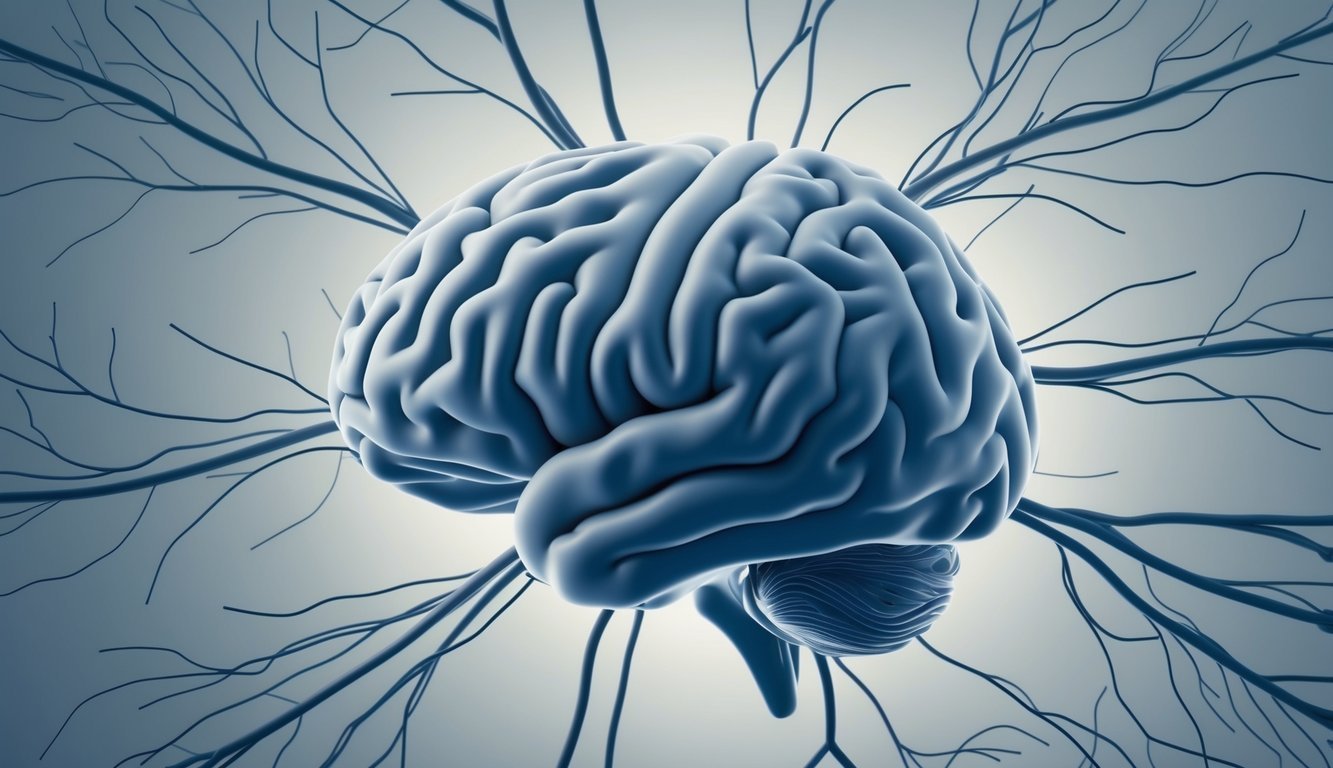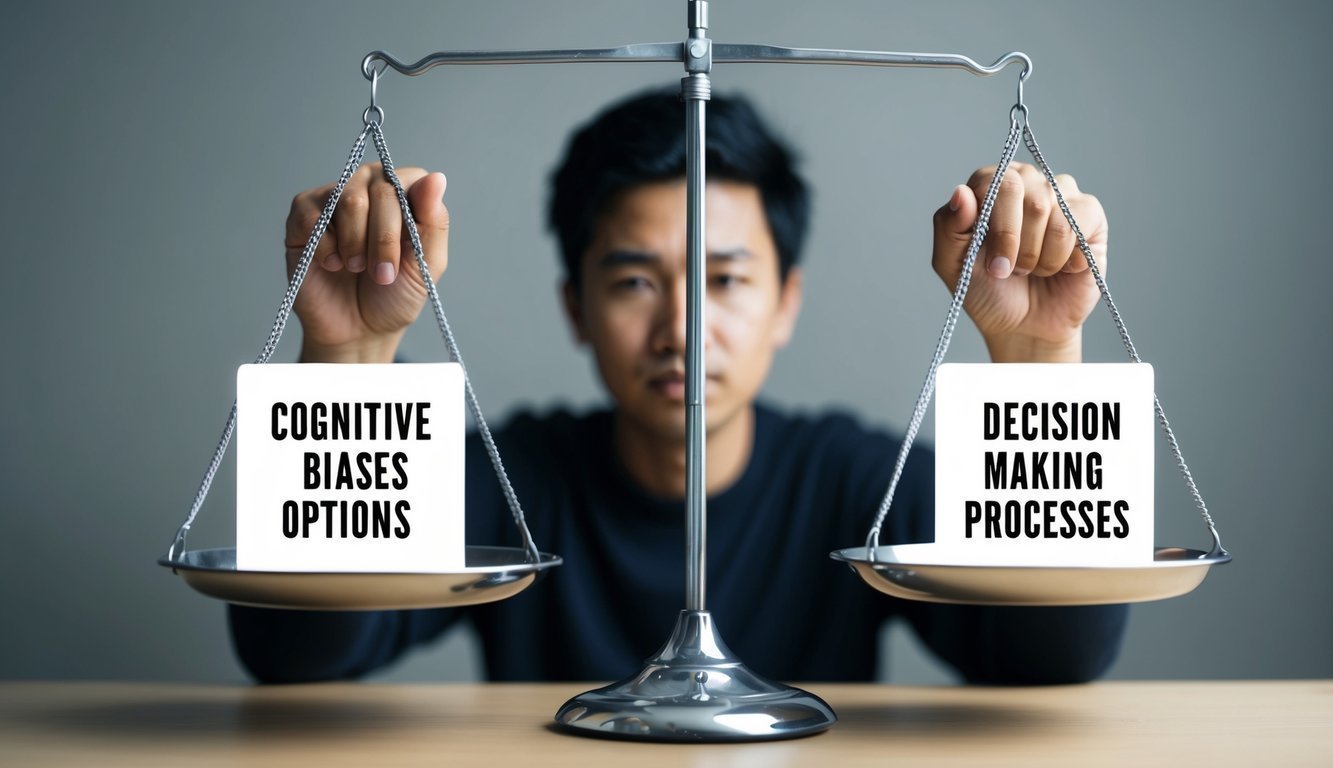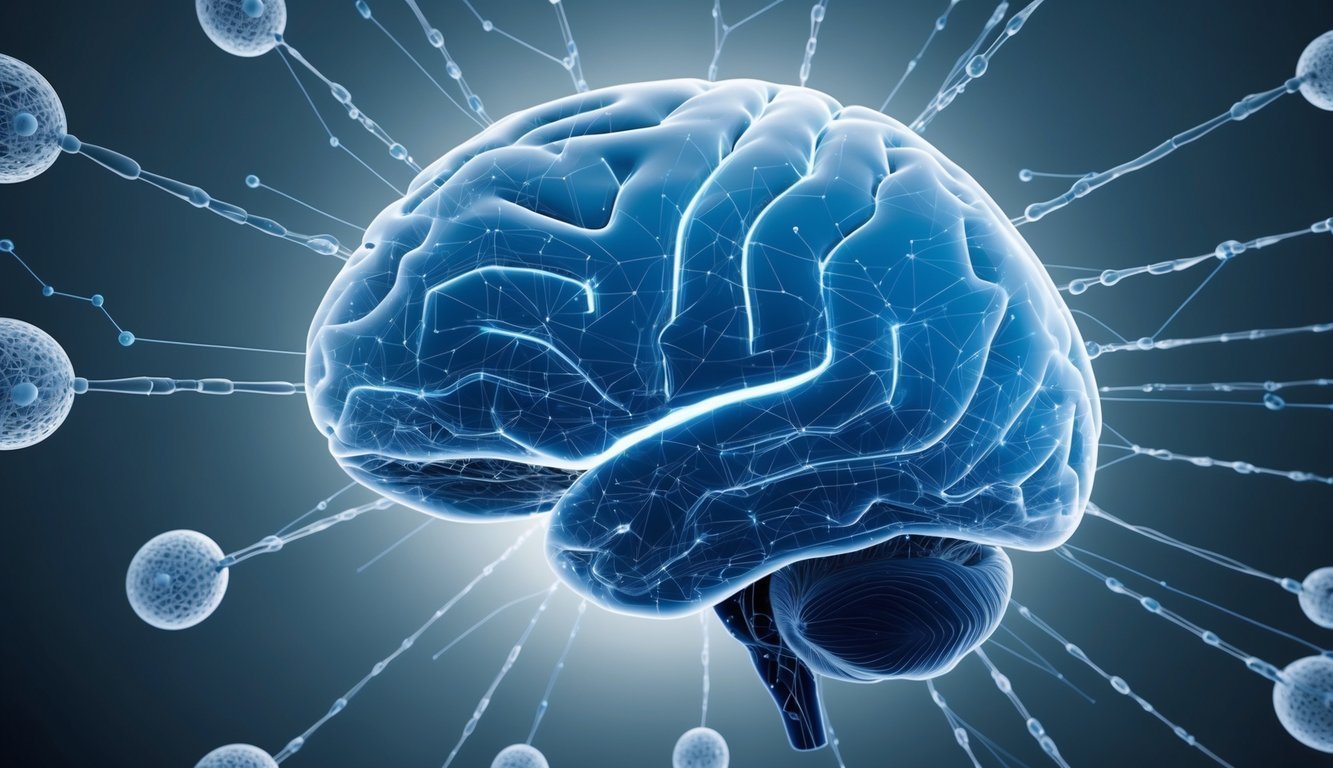PsychNewsDaily Publishers
100 Summit Drive
Burlington, MA, 01803
Telephone: (320) 349-2484
PsychNewsDaily Publishers
100 Summit Drive
Burlington, MA, 01803
Telephone: (320) 349-2484
Cognitive psychology focuses on internal mental processes such as perception, memory, language, and decision-making, influencing behavior and enhancing understanding of learning and cognition.

Cognitive processes are fundamental to human thought, learning, and interaction with our surroundings. These mental operations include perception, memory, reasoning, and decision-making, which all contribute to shaping our understanding and behaviors.
Cognitive psychology investigates the way individuals process information, concentrating on internal mental processes that influence behavior and cognition.
Notable areas of study include:
Researchers in the field utilize various methods to explore mental processes, such as laboratory experiments, brain imaging techniques, and computational modeling.
The goal of cognitive psychologists is to decipher how individuals acquire, process, and retain information. Their findings have real-world applications in education, human-computer interaction, and mental health treatment.
Cognition refers to the mental actions involved in learning and understanding through experience, thought, and sensory input. Key mental processes related to cognition include:
These processes collaborate to facilitate advanced cognitive functions. For instance, social comparison is a cognitive process that involves evaluating oneself relative to others.
Comprehending these processes sheds light on human behavior and decision-making, and it also aids in the development of strategies for enhancing cognitive performance and addressing cognitive deficits.
Cognitive science is an interdisciplinary area that merges psychology, neuroscience, computer science, linguistics, and philosophy, aiming to unravel cognition and its mechanisms.
Cognitive neuroscience specifically investigates the relationship between brain structures and cognitive processes.
Primary research techniques include:
These methods allow scholars to monitor brain activity during cognitive tasks, aiding in mapping functional areas of the brain and understanding cognition’s neural basis.
Progress in cognitive neuroscience has resulted in improved treatments for cognitive disorders and a deeper understanding of learning and memory processes.

Cognitive functions depend on complex neural processes that allow the human brain to perceive, process, and react to information. These mechanisms are essential for advanced mental activities and behaviors.
Perception originates from sensory data gathered from the environment. The brain receives signals through multiple sensory channels such as vision, hearing, touch, taste, and smell. These signals are processed by specialized neural networks that interpret and integrate the input.
For example, visual perception involves detecting light with photoreceptors in the retina, with this information then sent to the visual cortex for analysis of features like color, shape, and motion.
Auditory perception involves a similar progression, where sound waves are converted into electrical signals in the cochlea and subsequently processed in the auditory cortex.
Attention is vital for concentrating on relevant information while filtering out distractions. Selective attention enables individuals to hone in on specific stimuli in their environment.
The brain’s attentional networks, particularly the frontal and parietal cortices, are key players in this task. These areas help prioritize and allocate cognitive resources to the most critical tasks or stimuli.
Attention mechanisms involve both bottom-up processes, influenced by striking environmental features, and top-down processes guided by intentions and expectations.
Memory comprises several interconnected systems. Working memory temporarily holds and manipulates information, supported by regions such as the prefrontal cortex and parietal areas.
Short-term memory briefly stores facts for immediate use, while long-term memory retains information over extended durations. The hippocampus plays a crucial role in converting short-term memories into long-term storage.
Cognitive processes related to memory involve encoding (acquiring new data), storage (maintaining data over time), and retrieval (accessing stored data as needed).
Language processing incorporates a network of brain regions, including Broca’s area for speech production and Wernicke’s area for comprehension. The arcuate fasciculus connects these regions, aiding in communication.
Children acquire language through neural plasticity and exposure to speech. Critical developmental periods enable more efficient language learning.
Language processing mechanisms include phonological awareness, syntactic parsing, and semantic integration, working together for understanding and generation of spoken and written communication.
Advanced cognitive functions like reasoning and decision-making engage the prefrontal cortex and related areas. These regions support executive functions such as planning, problem-solving, and cognitive flexibility.
Logical reasoning typically employs both deductive and inductive methods to draw conclusions from available data. Recognizing patterns and making inferences is crucial in this cognitive mechanism.
Decision-making entails evaluating options, contemplating possible outcomes, and choosing an appropriate path. This process integrates emotional and rational factors, with areas like the orbitofrontal cortex influencing value-based judgments.

Cognitive abilities encompass a variety of mental processes essential for learning, reasoning, and problem-solving, developing throughout life and influenced by genetic and environmental factors.
Cognitive development describes the evolution of mental processes from early childhood to adulthood, with expanding capacity for complex thought as individuals grow.
The process of memory creation becomes increasingly sophisticated, leading to enhanced data retention and recall. The processing speed increases, allowing for quicker evaluations and decisions.
Critical thinking abilities advance, promoting the skill of evaluating information judiciously. Abstract reasoning abilities emerge, facilitating understanding of intricate concepts and relationships.
Language acquisition is crucial in cognitive advancement; growing vocabulary and communication skills foster more profound expression and comprehension.
Problem-solving capabilities improve, integrating strategies like trial-and-error and logical deduction. Social cognition evolves, bolstering interpersonal understanding and empathy.
Intelligence encompasses a wide array of cognitive abilities contributing to adaptive behaviors and problem-solving. It is a multifaceted construct rather than a singular, fixed trait.
Intelligence assessments evaluate various cognitive domains:
These assessments reveal insights into an individual’s cognitive strengths and weaknesses, though they may not capture the entirety of intelligence.
Theories of multiple intelligences propose diverse types of cognitive aptitude, including:
Environmental influences, educational background, and personal experiences significantly affect cognitive performance and testing results.
Cognitive disorders can impact a range of mental functions, affecting learning, memory, and everyday activities, and may be developmental or acquired in nature.
Learning disabilities such as dyslexia and dyscalculia pertain to specific cognitive areas, potentially hindering academic progress without indicating lower overall intelligence.
Attention-deficit/hyperactivity disorder (ADHD) affects attention regulation as well as executive functions, which may impact focus, impulse control, and organizational skills.
Autism spectrum disorders encompass variations in social cognition, communication, and behavioral patterns, impacting information processing and sensory experiences.
Acquired cognitive impairments may arise from:
Timely identification and intervention are critical to managing cognitive disorders, and tailored strategies can help individuals maximize their cognitive capabilities.

Cognitive biases greatly influence our judgment and decision-making processes, constituting mental shortcuts that may lead to systematic errors in rational thought, affecting how we interpret information and make choices.
Cognitive biases are systematic deviations from rationality in judgment that stem from various cognitive constraints and mental shortcuts humans use for quick information processing.
Common biases include:
Such biases can significantly influence decision-making across various contexts, from personal choices to corporate strategies.
Hot and cold cognition denote two distinct thinking modes affecting decision-making.
Cold cognition refers to rational, logical thinking free from emotional influence, involving thorough analysis and problem-solving based on facts and objective information.
In contrast, hot cognition represents emotionally charged thought, where emotions such as fear, anger, or excitement can sway judgment and decision-making processes.
Both cognitive types are integral to human behavior and decision-making. Understanding their interaction aids individuals in recognizing situations where emotions may hinder clear judgment.
Heuristics are mental shortcuts that facilitate rapid decisions, particularly in complex situations. While they can be helpful, they sometimes lead to cognitive biases and judgment errors.
Common heuristics include:
Although heuristics can be efficient, they may result in less than optimal decisions. Recognizing these mental shortcuts can empower individuals to make more informed choices by understanding when they may be over-relying on simplified thinking.

Cognitive research employs a variety of methods to study mental processes, with approaches ranging from therapeutic interventions to controlled experiments and philosophical explorations, each offering unique insights into cognition.
Cognitive Behavioral Therapy (CBT) is a prevalent therapeutic method in psychology, concentrating on identifying and changing maladaptive thought patterns and behaviors.
CBT underscores the connection between thoughts, feelings, and actions. Therapists assist clients in recognizing negative cognitive patterns and cultivating healthier alternatives.
Core CBT techniques encompass:
This approach has proven effective in addressing various mental health challenges, including anxiety disorders, depression, and PTSD.
CBT also incorporates elements of metacognition, increasing individuals’ awareness of their thinking, which can enhance emotional regulation and problem-solving competence.
Cognitive psychologists often favor controlled experiments to obtain empirical evidence about mental processes. Such studies are typically conducted in laboratory settings to minimize external variables.
Common experimental designs consist of:
Researchers utilize various tools to assess cognitive functions, including:
These techniques facilitate the systematic study of attention, memory, and decision-making phenomena. The data collected provides a foundation for advancing and refining cognitive theories.
Additionally, advancements in genetics and neuroscience are becoming increasingly important in cognitive research, providing insights into the biological underpinnings of mental processes.
Cognitive models are theoretical frameworks aimed at explaining cognitive processes. These models often incorporate insights from disciplines such as psychology, neuroscience, and computer science.
Prominent cognitive models include the Information Processing Model, Parallel Distributed Processing (PDP) Model, and ACT-R (Adaptive Control of Thought-Rational).
The philosophy of mind plays a vital role in cognitive studies by addressing fundamental questions regarding consciousness, intentionality, and the essence of mental states.
Key philosophical paradigms include Functionalism, Embodied Cognition, and Representationalism.
The cognitive revolution in psychology, which emerged in the mid-20th century, signified a transition from behaviorism to an emphasis on internal mental processes. This shift has substantially shaped contemporary cognitive research methodologies and theories.